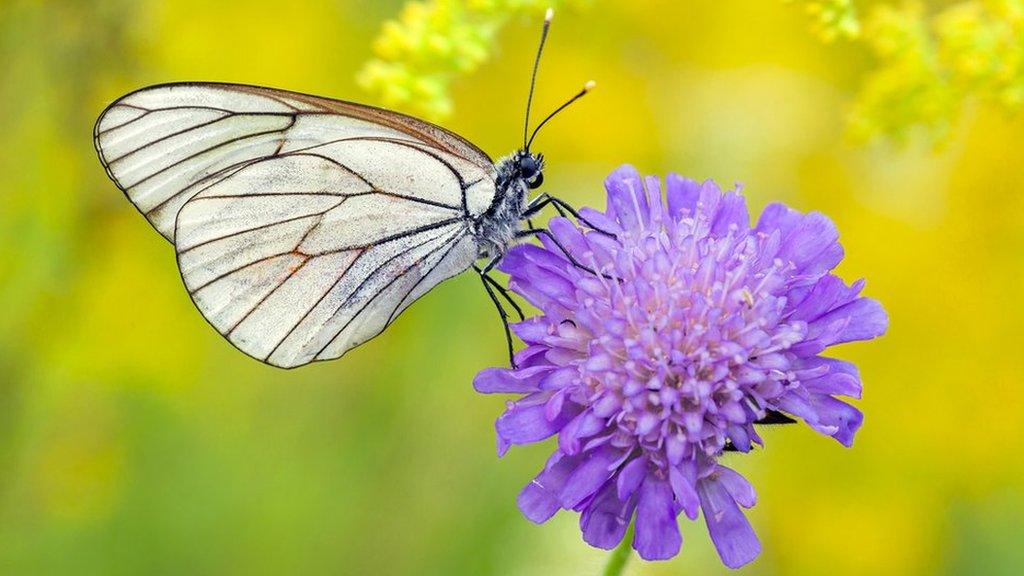Mystery over rare butterfly's appearance
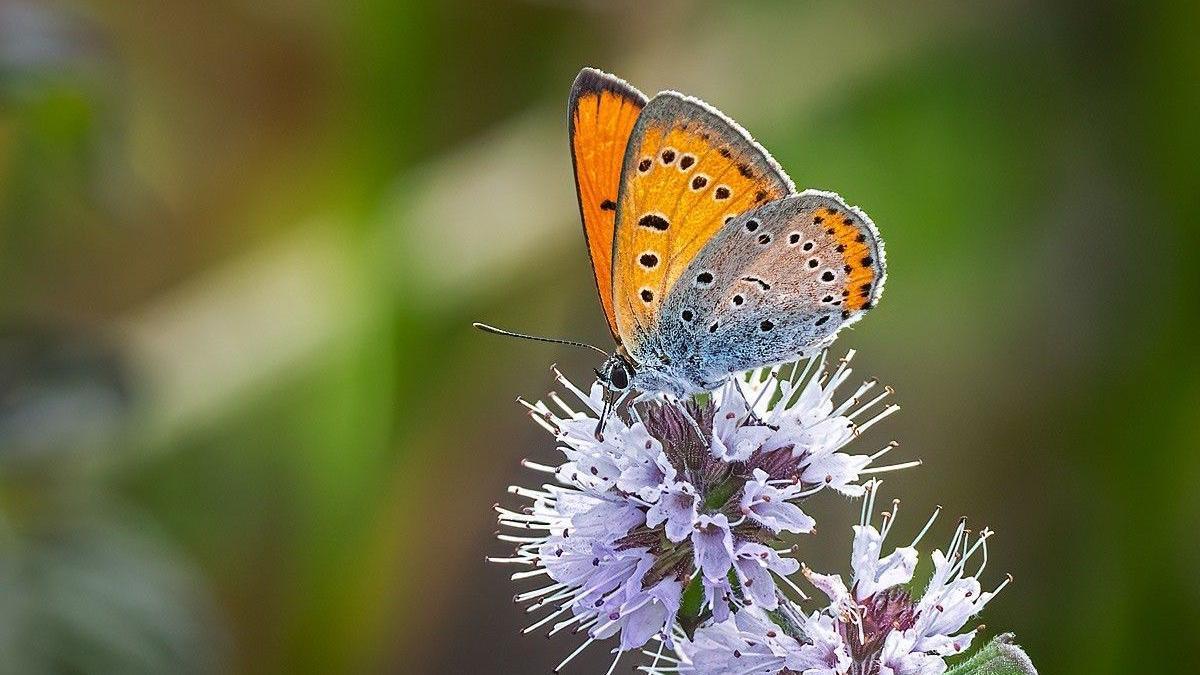
The British version of the Large Copper was once found in Cambridgeshire, Lincolnshire and Somerset, but became extinct in the 19th Century
- Published
A rare butterfly has mysteriously appeared in the Black Country, with experts believing they have been bred in captivity and deliberately released.
The large copper butterfly has been spotted in the Bumble Hole Nature Reserve in Dudley and the adjoining Warrens Hall Nature Reserve in Rowley Regis, causing hundreds of wildlife enthusiasts to flock to the area.
It is believed to be the European subspecies of the butterfly, with the British subspecies going extinct in the 1850s due to the destruction of its fenland habitats.
Mike Williams, from the West Midlands branch of the Butterfly Conservation charity, said piecing together their origins was proving "a bit of a detective story".
Crowds of wildlife lovers have been keen to try and photograph the extremely rare butterflies.
Phill Ward, from Burntwood, said they were "absolutely stunning", while Ray Hurd, from Wolverhampton, said it was strange that they had appeared in the area.
Steve Hextell from Sutton Coldfield said: "I probably won't see any of these again - they're extinct in Britain.
"Whether they'll survive or not is another matter but it's worth coming to see them - I photographed them anyway, I may not get another chance."
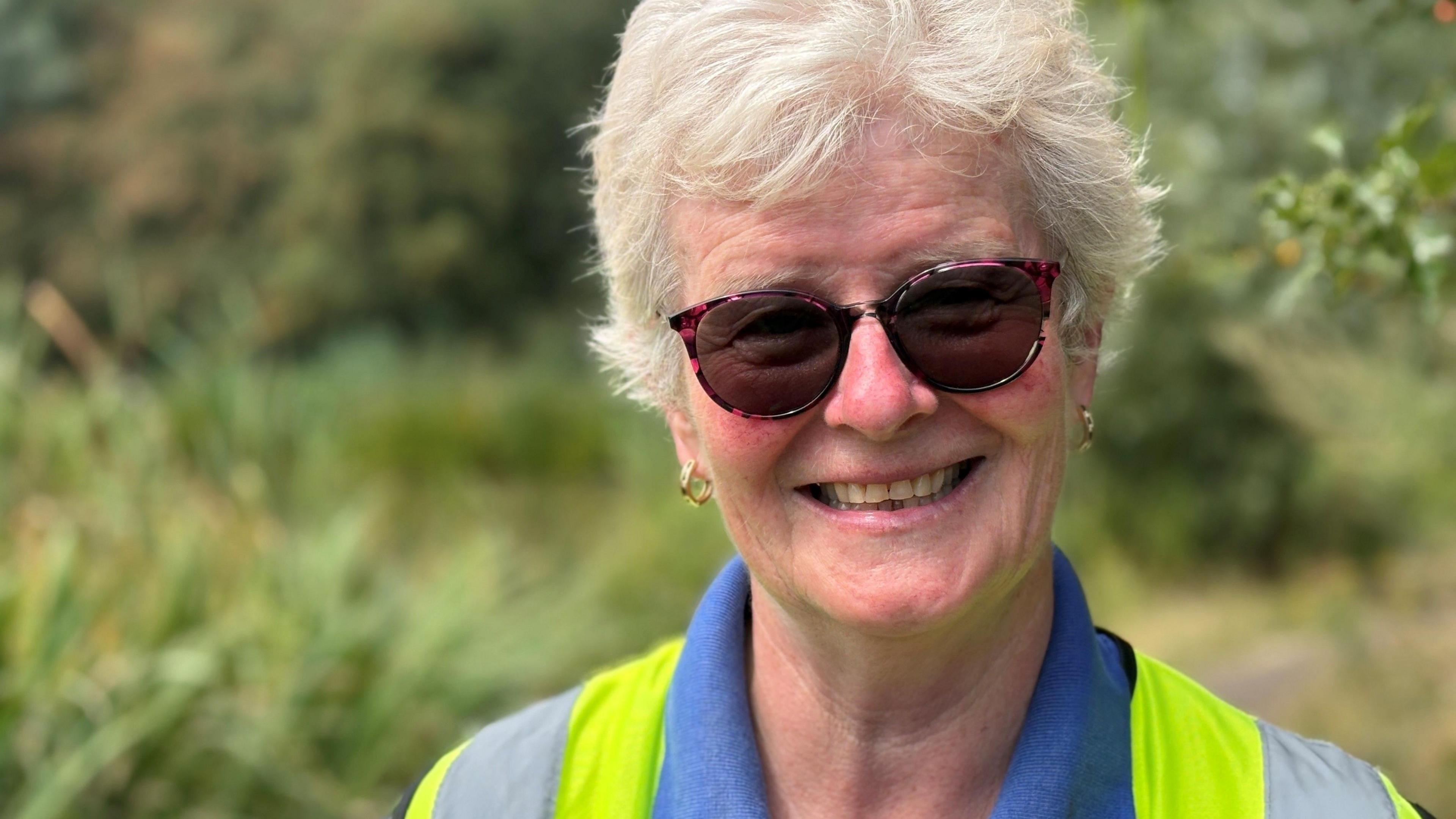
Brenda Myers says it has been "manic" at the reserves with the number of people visiting to see the rare butterflies
Brenda Myers, the chair of the Bumble Hole Conservation Group, which looks after the two nature reserves, said: "It's just been manic, absolutely manic.
"The majority of people have been very careful, very understanding, very conscious of conservation.
"But some unfortunately have not been as positive and have trampled the area down a little bit."
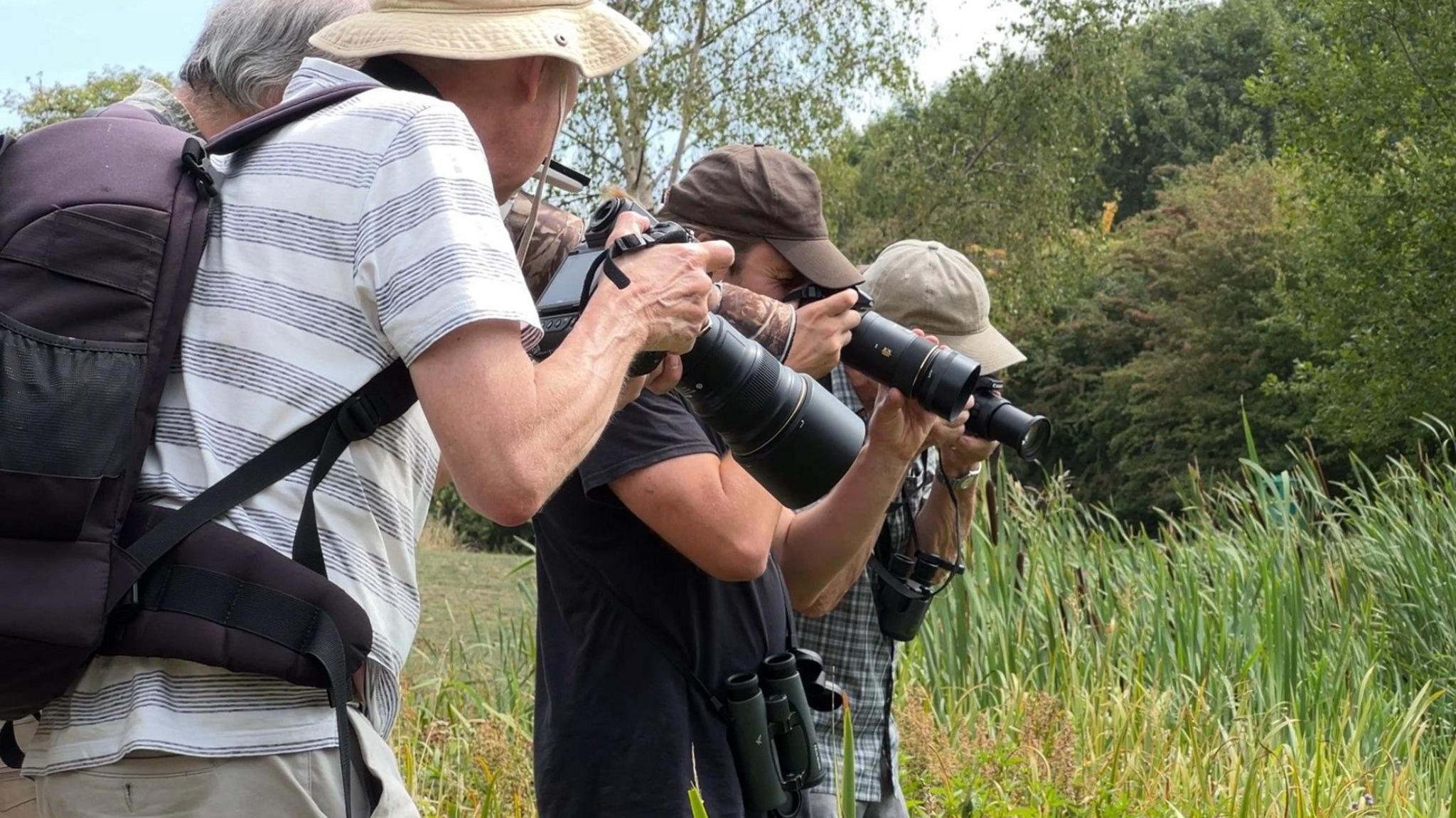
Wildlife enthusiasts have travelled from across the country to spot the large coppers
Mr Williams, the publicity officer for the West Midlands branch of Butterfly Conservation, described the large coppers as "stunning".
"It does remind you to conserve the butterflies we have got," he said.
"No one knows who released the butterflies. We're trying to put the clues together. It's a bit of a detective story.
"I think someone has bred large coppers in captivity, as it's still possible to obtain eggs and caterpillars on the internet, and decided to release them here."
Unlicensed releases have hit the headlines over the past few years, from tales of so-called "beaver bombing", to the illegal release of three lynx up in the Scottish Highlands earlier this year, in a bid from activists to re-establish the keystone species in the wild.
However, the motivation is currently unknown for the suspected release of these large coppers.
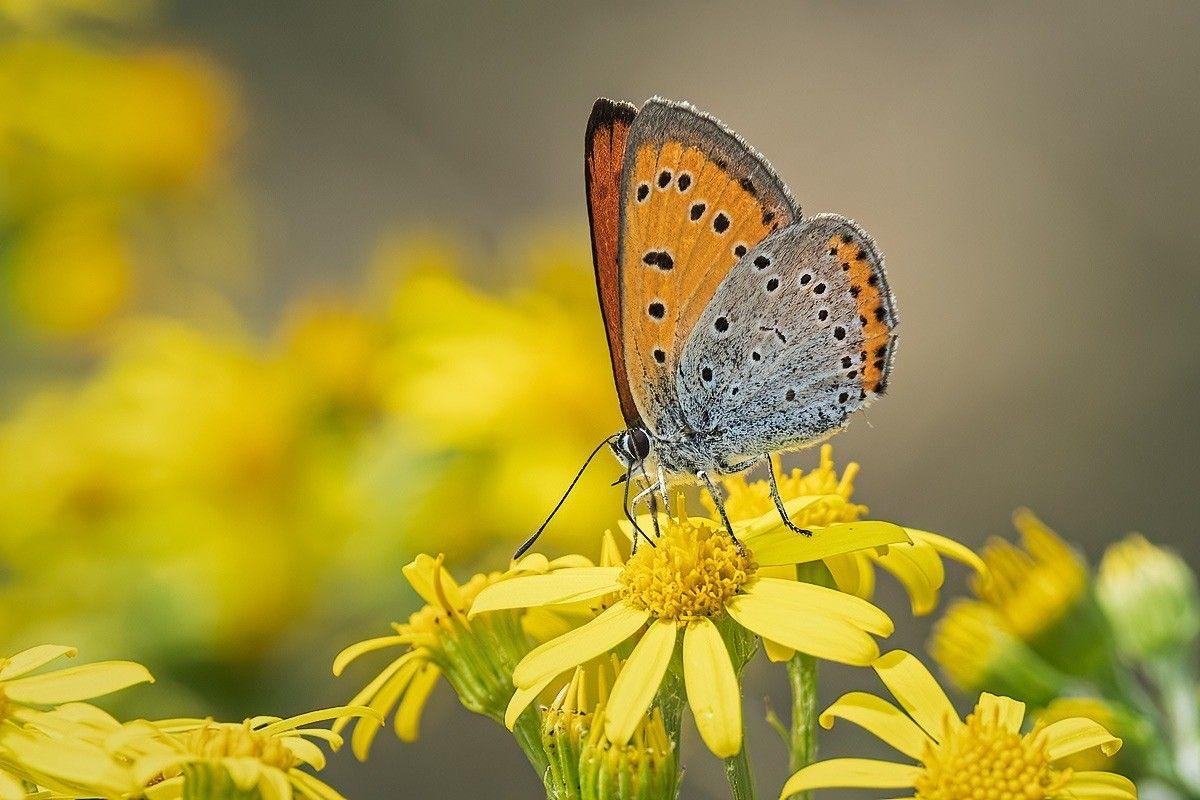
Large coppers have been extinct in the UK since 1851 but are still present in areas of Europe
While the sightings have sparked excitement from wildlife enthusiasts, Mr Williams is not optimistic about their future.
One of the plants they feed and lay eggs on - the great water dock - is present at the reserves, but he does not believe there is enough to sustain the species, and also believes the area is too small for them.
"It requires a very very large area of habitat to be successful and we haven't got that in the Black Country. It's not enough to sustain them in the long term," he said.
"Sadly I don't think they'll last in the Black Country. I think they will eventually die out."
Mr Williams also claimed that British winters were not suited for the butterflies, and that they might perish over the winter.
Speaking about their release, he added: "It's far from a wise move. These releases hardly ever succeed.
"People shouldn't take this into their own hands and release butterflies willy nilly."
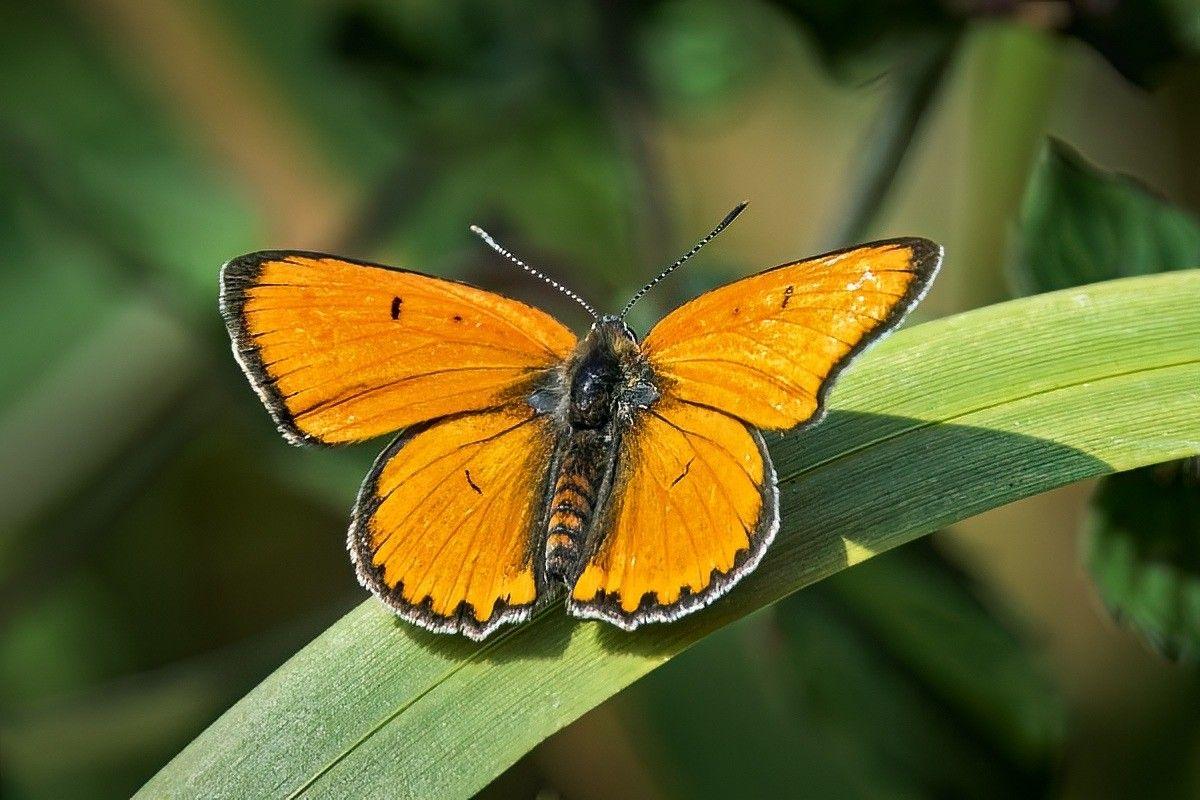
Mr Williams does not believe the large coppers will be able to survive in the long-term at the Black Country reserves
Mr Williams said that the message to members of the public interested in butterflies was to work with organisations to conserve them.
He pointed to the success of the reintroduction of large blue butterflies in Britain after going extinct, and the success of wood whites at sites across Worcestershire.
"These reintroductions were a huge amount of work, providing habitat, being careful where they got stock from, and getting approval from Natural England and the site owners," he said.
"None of these have happened [in Dudley]."
However, Mr Williams said there was a lot individual people could do to help protect butterflies, including planting pollinator-friendly plants in their gardens to support local populations of butterflies, and volunteering with wildlife organisations.
Get in touch
Tell us which stories we should cover in Birmingham and the Black Country
Follow BBC Birmingham on BBC Sounds, Facebook, external, X, external and Instagram, external.
Related topics
- Published27 June
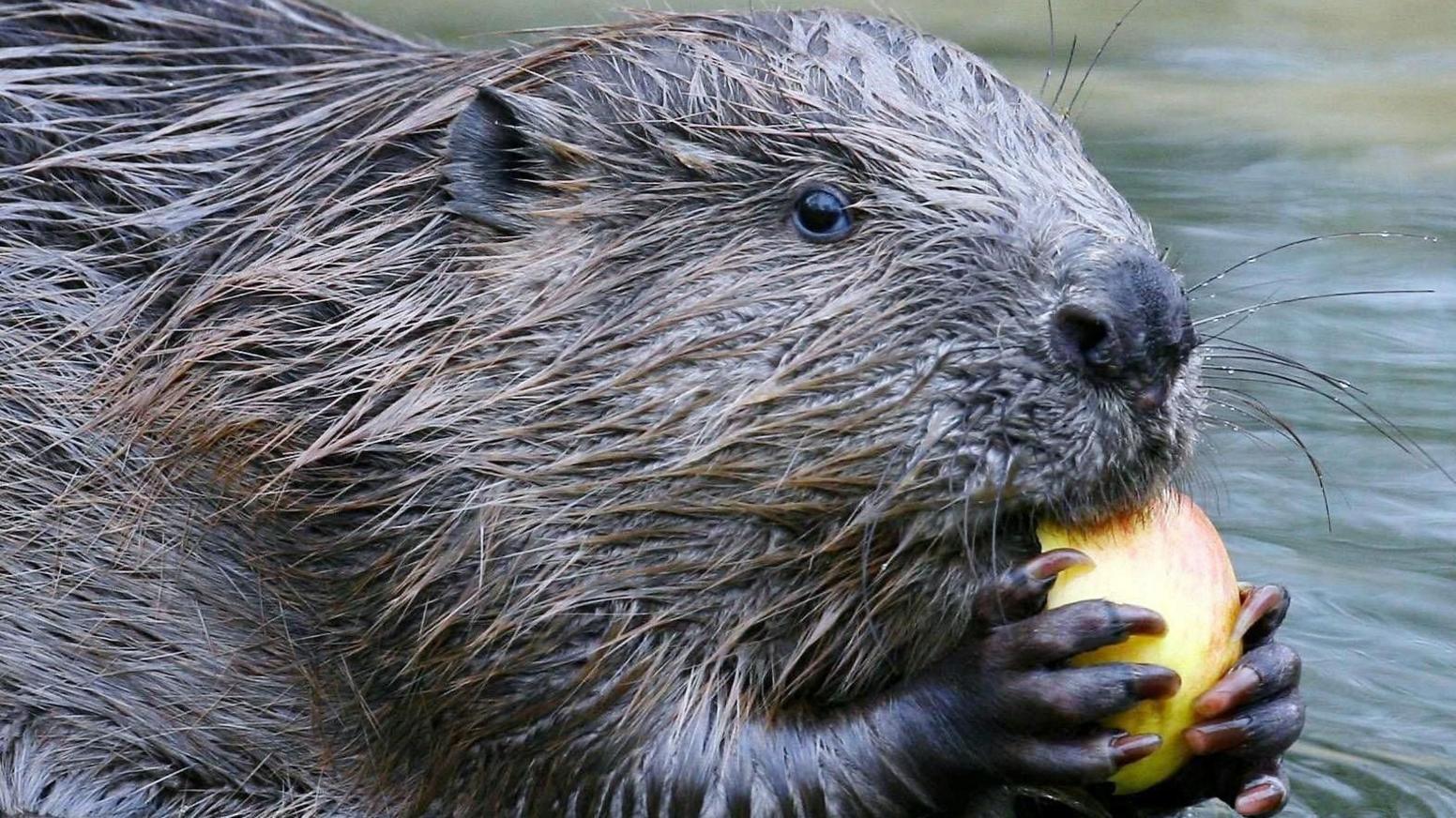
- Published15 June 2023
